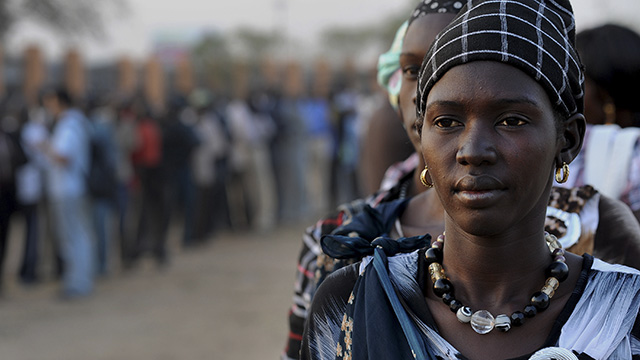What are credible elections?
Credible elections are characterized by inclusiveness, transparency, accountability, and competitiveness.[1]

Inclusive elections provide equal opportunities for all eligible citizens to participate as voters in selecting their representatives and as candidates for election to government. This right to participate is a broad concept and can only be subject to reasonable restrictions that are provided by law. Authorities must take steps to assess and remove any barriers to the participation of all citizens. This includes removing barriers for traditionally marginalized populations such as ethnic, religious or linguistic minorities; women, youth or elderly citizens; and persons with disabilities. Reasonable restrictions on participation should be narrow, like a minimum age for voting and standing as an electoral contestant.
Elections are transparent when each step is open to scrutiny, and stakeholders can independently verify whether the process is conducted honestly and accurately. The principle of transparency is linked to the fundamental right of citizens to seek, receive and impart information (which are elements of the freedom of expression), as well as the right to take part in government and public affairs.[2] Decision making processes must be open to scrutiny, and reasonable opportunities for public input should be provided. Information relating to all stages of the electoral cycle must be made available and accessible to citizens, including voters and candidates. Nonpartisan and partisan observers should be accredited to observe all phases of the election process and be permitted to comment publicly on the process free from unreasonable restriction.
Accountability in elections refers to the rights of citizens with respect to the conduct of other electoral stakeholders, including the government, election management bodies (EMBs), political parties, candidates and security forces. Elections are a key mechanism through which citizens hold their governments accountable, but there must also be accountability within election processes themselves. There must be effective remedies in place for violations of citizens' election-related rights. There must also be administrative accountability for those organizing elections and those conducting governmental activities related to elections. In addition, there must be timely procedures to bring to account those who conduct criminal acts that affect electoral-related rights.
Elections are competitive when citizens have reasonable and equitable opportunities to compete to be elected to governmental offices. Political competition is a central component of elections that truly reflect the will of the people. The principle of competitiveness relates to aspects of the election throughout the electoral cycle. The legal framework must allow citizens to come together and register political parties to represent their interests, and provide access to spots on the ballot for parties and/or candidates. Parties and candidates must be able to campaign and voters to cast their ballots free from illegal influence, intimidation or violence.
For a more detailed discussion of these principles, see Promoting Legal Frameworks for Democratic Elections: An NDI Guide for Developing Laws and Law Commentaries, Section Two (2008), also published as Chapter One in International Election Principles: Democracy & the Rule of Law (JH Young, ed., American Bar Association (ABA), 2009). ↩︎
Merloe, Patrick. "Human Rights -- The Basis for Inclusiveness, Transparency, Accountability and Public Confidence in Elections", in International Principles: Democracy & the Rule of Law (JH Young, ed., ABA, 2009), p. 3, 18-20. ↩︎
